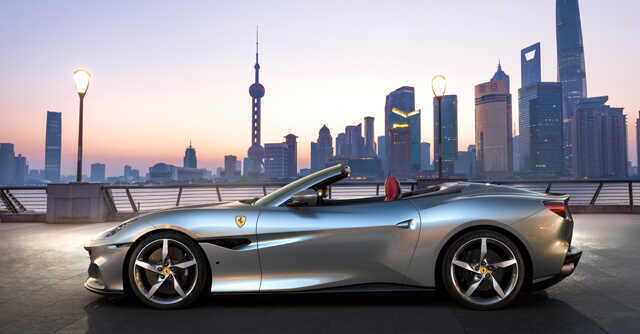
Ferrari inks blockchain pact to sell ‘exclusive digital content’


Ferrari, one of the most iconic names in the world of automobiles, has announced partnership with blockchain platform Velas Network AG that includes a host of sponsorship deals, along with the prospect of creating “exclusive digital content”.
The latter, likely refers to Ferrari selling some of its designs and other collectibles through Velas, which will offer Ferrari’s online content in the form of non-fungible tokens (NFTs).
Also read: Indian actors, cricketers who are minting NFTs and stepping into Metaverse

An NFT is a digital or online artwork or property that has a unique token -- making it stand out from any of its digital copies. The sector has seen a hefty jump over the past few months, as interest in cryptocurrencies, blockchain and NFTs have collectively surged.
The NFT project will be undertaken through Scuderia Ferrari, the racing arm of the Ferrari automotive umbrella.
Also read: NFTs, DeFi and traceability- top 3 Cryptocurrency trends for 2022

Velas Network AG is built on the Solana blockchain, and claims to offer one of the best alternatives to Ethereum 2.0-based blockchain platforms.
Ferrari is hardly the first automaker to enter this field. Yesterday, the first NFT marketplace of MG Motors in India went live. Built through Indian startup KoineArth’s Ngagen NFT marketplace, the MG NFT ecosystem makes for one of the first NFT ecosystems among mainstream consumer automobile brands.
Among premium brands, Porsche has already tapped blockchain brand Forward31 to build Fanzone, an NFT-based trading cards platform for followers of the brand to buy or sell specific blockchain content. McLaren, also a major premium automobile brand, has announced its partnership with crypto platform Tezos -- stating that it will also have its own NFT trading platform.

The move comes as more automotive manufacturers are looking increasingly at NFT and blockchain deployments. Major companies such as Ford and BMW have announced the use of blockchain in manufacturing processes. The use cases straddle in-car payments, ride-sharing models for shared mobility, and more.
